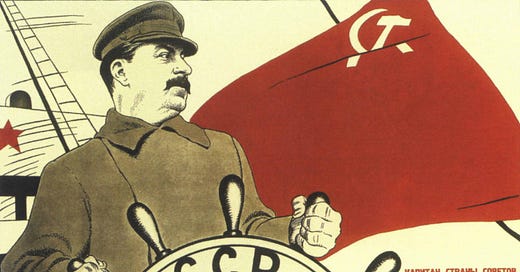Determinism in the USSR, Part 3: Stalin's will
Stalin saw himself - not economic determinism - as the captain of the USSR's fate.
The early Soviets were less ambivalent about determinism than Marx. There is a certain historical irony in their position, because the Bolsheviks in particular were understood as a party of activists – a vanguard that grabbed history by the horns and pulled it where they wanted it to go. Nothing in Marxism predicted that Russia was prepared to make a grand leap from serfdom to socialism, which made the entire Soviet project seem like an act of sheer will; thus, it is easy to imagine that early Soviet leaders maintained ordinary liberal activist ideas about the pliability of history, the power of organizing, and so on.
But consider Lenin who, in his essay Freedom and Necessity, paraphrases Engels approvingly:
…the necessity of nature is primary, and human will and mind secondary. The latter must necessarily and inevitably adapt themselves to the former.
Keep reading with a 7-day free trial
Subscribe to Carl Beijer to keep reading this post and get 7 days of free access to the full post archives.





